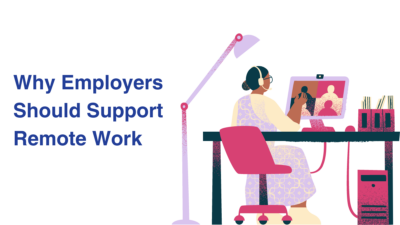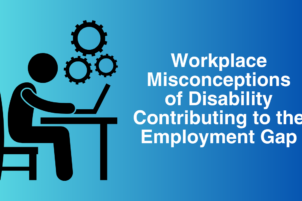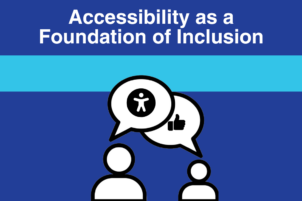 During National Disability Employment Awareness Month (NDEAM), it is important to understand the benefits of remote work for disabled job seekers and employees to create “Access to Good Jobs for All.”
During National Disability Employment Awareness Month (NDEAM), it is important to understand the benefits of remote work for disabled job seekers and employees to create “Access to Good Jobs for All.”
As a recent graduate of Davidson College and a physically disabled person with a passion for disability advocacy, my goal is to pursue a career focused on improving disability inclusion and accessibility within the workplace. My disorder, Acute Flaccid Myelitis (AFM), paralyzed me from the neck down in 2010. Although I regained the ability to walk, I still have paralysis in my arms and hands. Therefore, my disability impacts my ability to do everyday tasks such as getting dressed, washing and styling my hair, doing laundry, preparing meals, and getting from place to place. In 2019, I got my driver’s license after practicing for weeks at Shepherd Center in Atlanta, GA using their vehicle with accessibility modifications. However, I still do not have a car because the accessibility modifications will cost between $50,000-$60,000 — not including the vehicle itself!
Many individuals like me rely on public transportation or a family member, friend, or aide to drive them to work, especially since most places in the United States do not have adequate public transportation. Remote work can remove this access barrier to employment by greatly increasing access to jobs for disabled people who may struggle to get to a physical place of work. A common misconception exists that employers only need to provide reasonable accommodations for disabled employees that are specific to their work. According to the Job Accommodation Network (JAN), employers may be required to provide accommodations related to commuting “such as changing an employee’s schedule so [they] can access available transportation, reassigning an employee to a location closer to [their] home when the length of the commute is the problem, or allowing an employee to telecommute.”
The COVID-19 pandemic proved that most work can be completed just as successfully remotely. There are pros and cons to both in-person and remote work, so remote work should not be considered a “last resort” or “negative” option. Remote work is a simple and effective solution to removing barriers to employment for an already disproportionately underemployed population (disabled individuals are twice as likely to be unemployed compared to non-disabled individuals). Remote work also benefits those with cognitive and sensory disabilities by minimizing sensory overload, stressors, distractions, and additional interruptions to their work or focus. People who work from home can create an environment that allows them to do their best work.
To celebrate NDEAM, employers should do their part to increase the employment rate among disabled individuals by making their workplaces inclusive and accessible. Allowing disabled employees to work remotely is an important piece of the puzzle that enables us to prove we can do the job.
Disability Belongs works with employers to demystify and increase accessibility in the workplace, including by promoting the benefits of remote work to job seekers and employees with disabilities. We encourage employers to connect with us to discuss how to make your company more accessible to people with all different kinds of disabilities. Together, we can remove the barriers disabled people face in the workplace.






